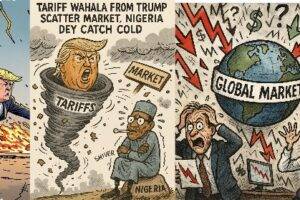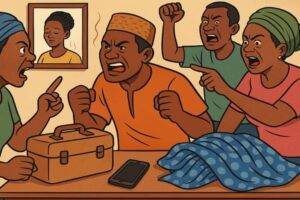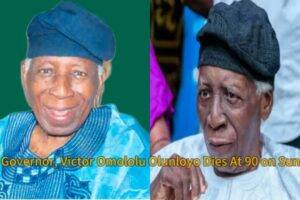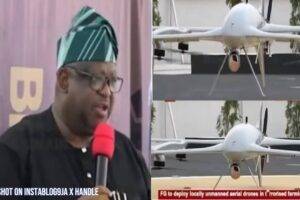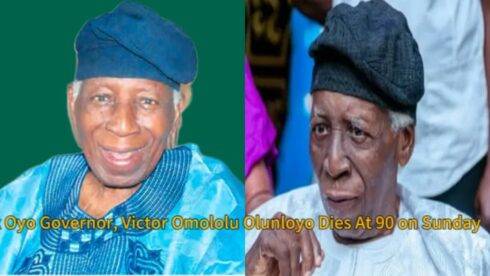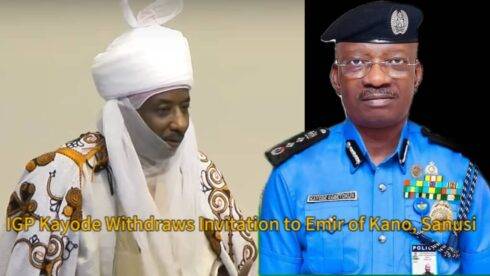President Tinubu has thrown his weight behind Nyesom Wike, the former governor of Rivers state, acknowledging his pivotal roles as both the FCT Minister and an advisor. This endorsement took place during a warm reception for a high-powered 62-member delegation from Rivers state at the Presidential Villa in Abuja.
President Tinubu and Minister Wike Discuss Infrastructure
During the meeting, President Tinubu addressed the urgent need for infrastructure development, with a particular focus on the dilapidated Elementary junction-Onne axis of the East West Road, which connects to the Port Harcourt Refinery. He expressed his gratitude for Minister Wike’s unwavering commitment and dedication, remarking, “The Honourable Minister, Wike, is not just the Minister of FCT; he is also my adviser and a great admirer of mine. He has hit the ground running, and he deserves our full support.”
President Tinubu also offered sage advice to the younger generation, urging patience with the governmental processes. “I am the Captain and Chief Salesman of the country,” he stated emphatically, underlining the imperative of reversing current trends and swiftly achieving progress. He pledged to work diligently, seeking divine guidance to meet the high expectations of Nigerians.
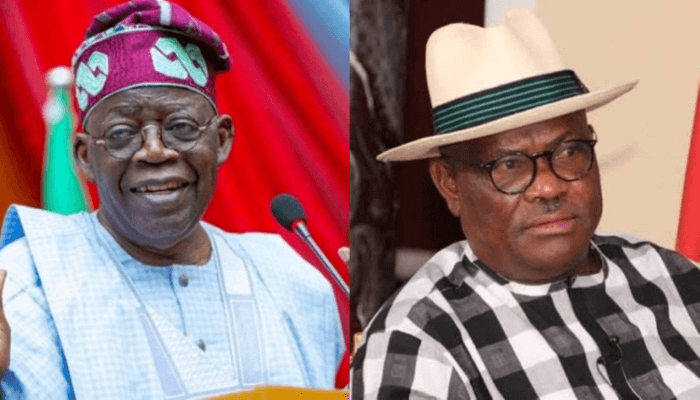
FCTA Unveils Major Road Rehabilitation Projects in Pivotal Districts
Meanwhile, the Federal Capital Territory Administration (FCTA) has unveiled an extensive list of 135 roads marked for rehabilitation and resurfacing in pivotal districts, including Wuse, Garki, Gwarimpa, Maitama, and additional zones. With the blessing of President Tinubu, Minister Nyesom Wike inaugurated Phase I of these ambitious projects, setting a commendable six-month deadline for their completion.
In Zone 1 of Wuse District, key streets slated for rehabilitation include Daloa, Kayes, Umme, Bumbuna, Masana, Badundu, Oran, Sawhaj, Arusha Crescent, Sunyani, Bamako, Takorade, Dakar, Bulawayo, Soka, Darioa, Kaolack, Kigali, and Gonder Street.
In Zone 2, the focus shifts to streets such as Kribi, Kumba, Touggourf, Kisumu, Gaborone, Faranah, Gabes, Lavumisa, Niami, Johannesburg, Angola, Korhogo, Bechar, Senanga, Hargeysa, 2 Khartoum, and Damba Street.
Zone 3 will witness the rehabilitation or resurfacing of six streets: Idimba, Port Loko, Ndele, Yele, Al-Fayyun, and Aswan.
Zone 4, on the other hand, will witness significant transformations in streets like Mandingou, Lubumbashi, Port Said, Mogadishu, Shinyanga, Sfax, Zinglunchor, Kitwe, Elminya Close, Sefadu, Meknes, Safi, Mbala, Gwelo, Melange, Savalou, Sheraton, and Yar’adua Road.
Zone 5 will witness the rehabilitation of five roads: Doula Street, Mombasa Street, Windhoek Street, Boffa Street, and Jessaoua Close.
Zone 6’s ambitious plans encompass the rehabilitation of streets such as Cotonou, Yaounde, Makeni, Massenya, Annaba, Bukoma, Mobondo, Mbabani, Diovo, Berbera, Chiongola, Jima, Kinshahsha, Bouake, Rabat, Tanga, Timbuktu, Zinder, Rumbek, Zuwai, Beyia, and Tema. Additionally, streets like Diredawa Street, Kalemie, Asmara, Mbandaka, Macenata/Welkom, Harare, Tripoli, Maseru, Iringa, and Dodoma are also on the rehabilitation list.
Zone 7 will see the transformation of key streets, including Lome, Harper, Huambo, Ndola, Sokode, Sirasso, Bambari Crescents, Masaka Close, and Dalaba Street, further emphasizing the comprehensive approach taken towards enhancing the FCT’s infrastructure.
These proactive measures underscore the unwavering commitment of both President Tinubu and Minister Wike to address pressing challenges and drive substantial progress in Nigeria’s capital city.
Table of Contents
Discover more from OGM News NG
Subscribe to get the latest posts sent to your email.


